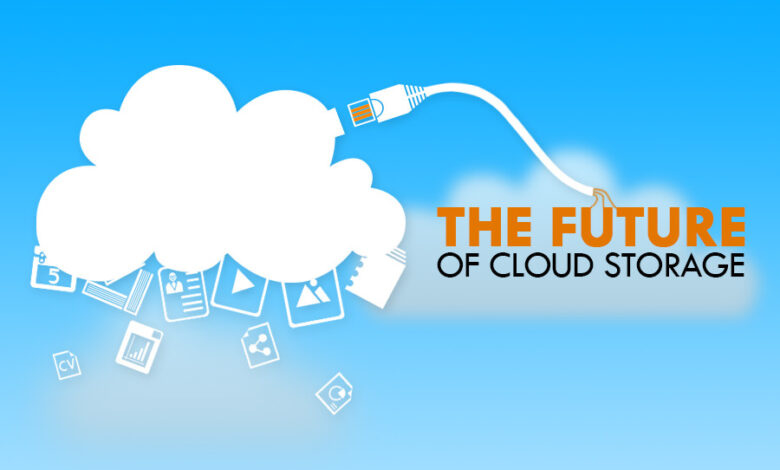Cloud Is the Future; Here’s why

Cloud computing is now a great way to move quickly with the business industry. However, some further developments may surprise companies – the cloud is no longer a differentiation; it is a strategic condition for long-term success. Ten years ago, switching to clouds proved to be a step forward – nothing more. It is now necessary to be informed and provide customers and employees with the services they expect. As cloud computing evolves and grows with computers, there is every reason to believe that it will evolve with technology.
Cloud Gives You Instant Access and Helps You Prioritize Strategic Work
It is believed that the cloud provides quick access to modern structures, security concerns, as well as error resolutions. However, the obvious costs are endured by the IT team, which needs time and budget for change and often has to plan centre, which can affect the entire organization.
The least obvious cost to your business is that if you only update twice a year, each update brings a lot of new features. It also means that, since you are introducing so many new things at once, you are more likely to make new errors. And these errors will be corrected in the next update in three to six months.
An estimate that gives users more storage, inventory, or calculations can take days, even weeks, or even months. Restoring and introducing security requires a regular commitment to time. And your IT team is fully responsible for problems or security vulnerabilities in the event of major accidents. All of this extra work is ordered in the cloud, which means your reseller is responsible for bug fixes, troubleshooting, and major incidents.
By default, all changes — whether it’s a security update, a new feature, or computing power — must go through information technology. Research has consistently shown that empowering employees and teams are closely linked to job success, employee satisfaction, and retention.
Cloud Modernizes Remote Work
It is believed that around 4.4 million individuals in the State working remotely already. On the other hand, it has been reported that 92% of employees likewise showed their interest in remote working. However, according to another report, many believed that due to the trend of remote working – offices will be closed by 2030.
For companies that are still in the field, working remotely is difficult. And cloud security is already designed for remote business (probably because 94% of companies surveyed say their security has improved since going to the cloud).
Support to decentralized teams is particularly facilitated by the same benefits that allow employees to work remotely, either full-time or not. The main advantage of a regionalized and telecommunications team (outside crisis management) is that it gives you access to a wider range of skills, both geographically and by creating jobs for those who have to work from home due to disability.
Perks of Cloud Computing For Businesses
As far as your business advances, the requirementsof technicalproficienciesplus IT setupalso exceedsthe existing ones. The preparation for this change – it is necessary for an organization to offer Cloud computing certification to employees to ensure competitiveness, productivity, and security, you need tools and services that are flexible enough to meet the challenges of growing your business. Cloud computing has completely changed the business of companies of all sizes.
Work Anywhere and Anytime
Because of the day-to-day needs of a small business, it has become impractical to require more than half of employees to be in the office. To grow your business, your employees often need to fly to meet with customers, or manage projects. Another survey found that SMEs can save up to 45 hours per remote- worker using cloud services.
Scalable Cloud Service
Cloud computing makes it easier for you to grow than it has ever done. You can manage hosting (for applications, data copies, websites) from the cloud without the need to purchase additional servers or replace physical space that you do not have on the site. However, research suggests that most people opt for security or information technologies are already integrated into cloud computing.
Reduced Operating Costs
Cloud software services are available under subscription agreements, which means a fixed monthly amount and an estimated budget of IT costs. Your budget doesn’t vary from month to month, so if you have a hardware or software upgrade issue that you need to address, you can spend the money on growth-oriented projects or provide your business with a better IT infrastructure.
How Does Cloud Memory Work?
With an Internet connection, cloud storage works and allows users to access and download data to any device they choose, such as a laptop, tablet, or smartphone. Cloud memory users can edit documents at the same time as other users, making office work easier.
The price of cloud storage varies depending on special needs. As a single user, you can usually get the original amount of free cloud storage – which was used to address open cloud security issues. You will have to pay extra for extra space. Current price models include monthly or annual prices, depending on the service used.
Large companies often need hundreds of digital storage devices. Cloud computing systems require at least twice as many storage devices to store customer data. In fact, these devices sometimes break down. The cloud system makes copies of customer data for storage on other devices. This method of backing up data is called redundancy.
Conclusion
Today, everyone is talking about cloud computing. According to many studies, this is the future, the answer to all the computer problems we know; others researches stated that this is just a lie and will sooner or later pass away. New features are being developed daily with cloud solutions that increase the scope and reach of small business opportunities.
With decades of experience, whether you’re already enjoying the benefits or planning to relocate, it helps you understand the importance of cloud computing for small and medium businesses. Cloud computing is evolving like computer equipment – just as the computer version of the overhaul began and evolved over several decades into a powerful portable mobile device – like the cloud.






